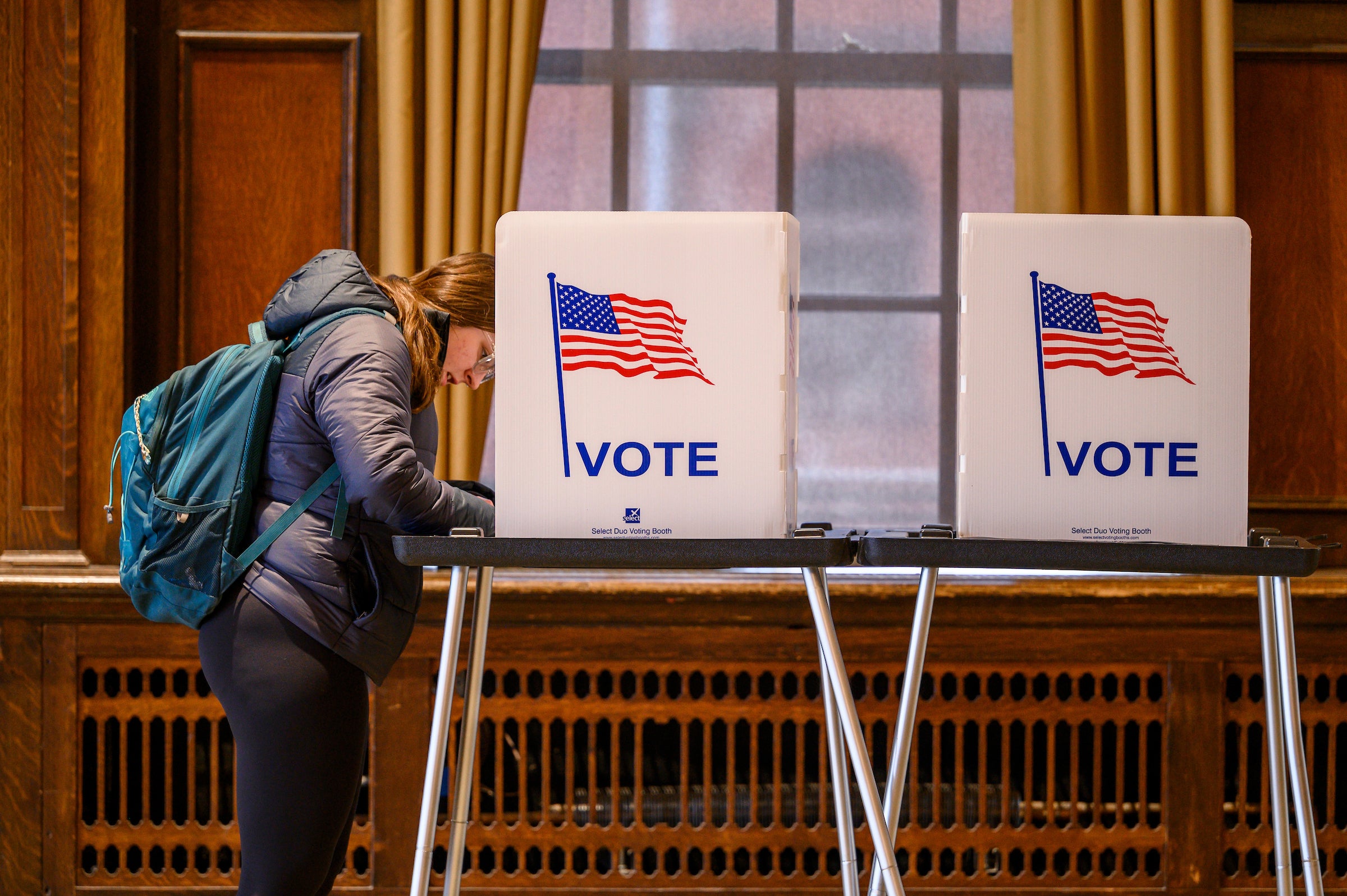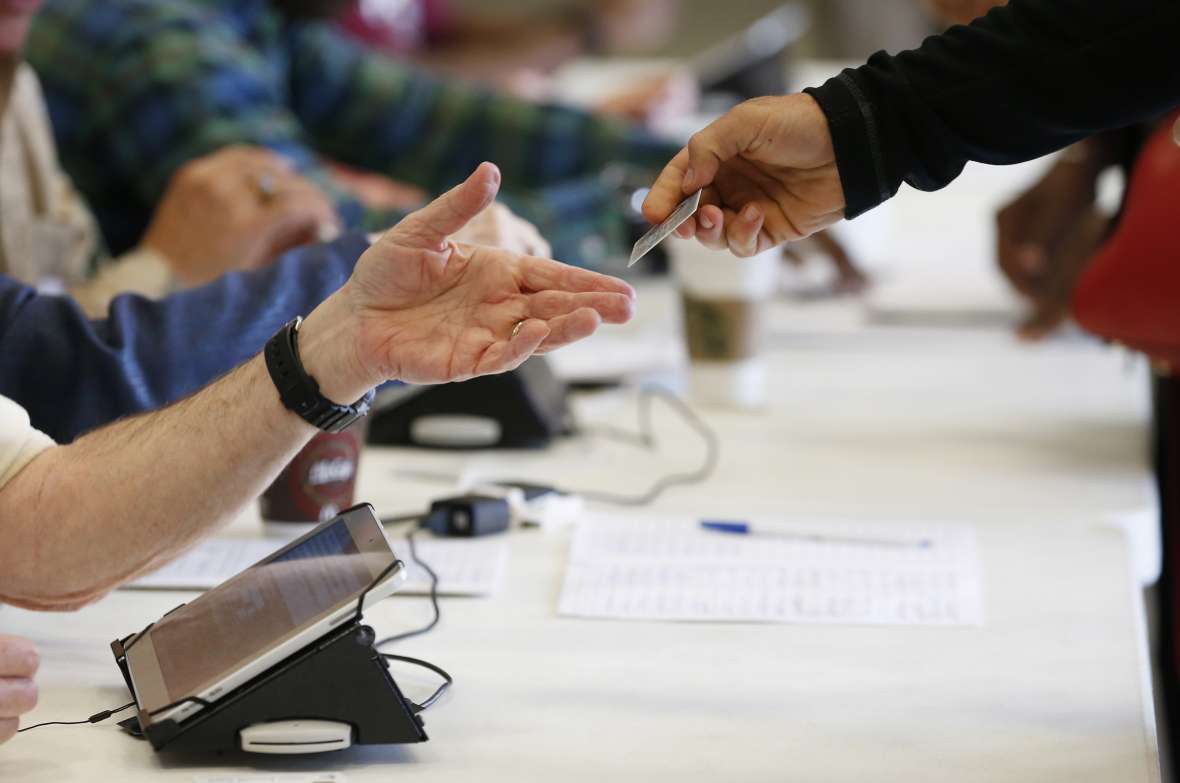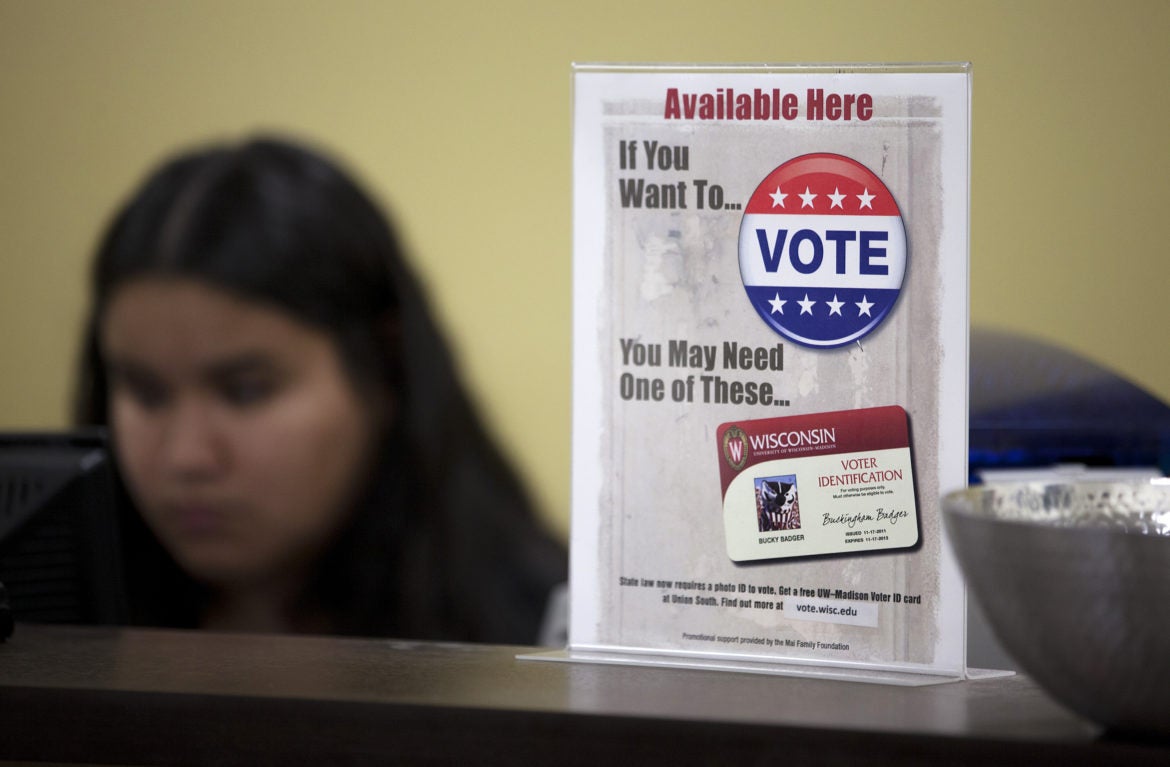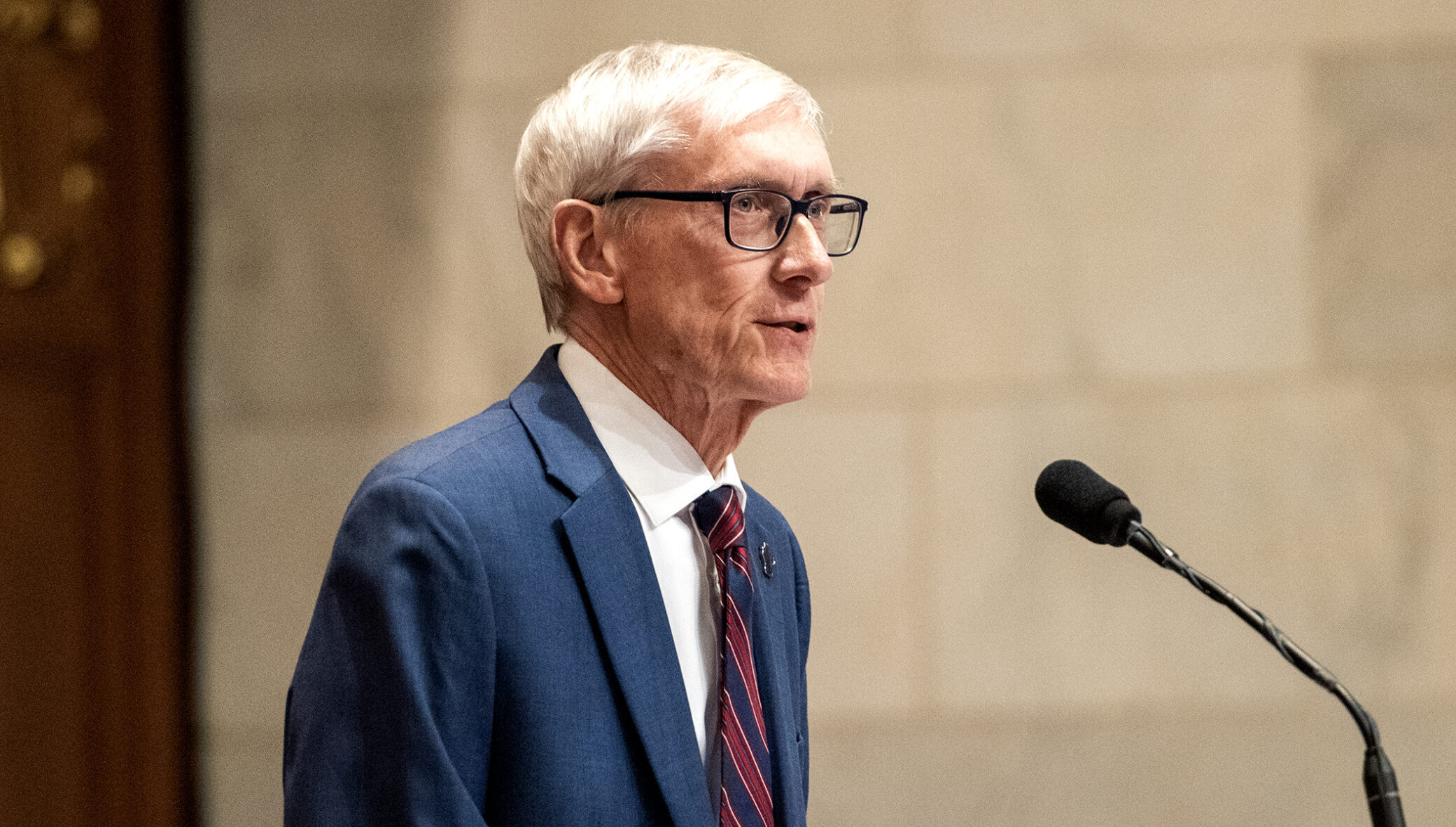Wisconsin has joined the growing list of states calling for an Article V convention to amend the U.S. Constitution under a measure that passed the state Senate by a vote of 19-14 on Tuesday night.
It was one of several high-profile issues that senators tackled in Tuesday’s session, including legislation to repeal Wisconsin’s decades-old sulfide mining moratorium and allow children as young as toddlers to go hunting.
The Article V resolution could be especially consequential down the road because if enough other states sign on to the idea, it would mark the first time the process has ever been used since the U.S. Constitution was ratified in 1787.
Stay informed on the latest news
Sign up for WPR’s email newsletter.
Republican backers say the convention would focus on a balanced budget amendment to rein in government debt, which state Sen. Dave Craig, R-Big Bend, called the main security threat facing the nation.
“Article V was put in place specifically for the situation in which Congress, the federal government, needs assistance from the states,” Craig said. “This is a concern of the states.”
But experts say there would be no way to restrict the agenda of an Article V convention once it’s called, meaning they could potentially amend the rest of the Constitution.
“Once those delegates are called to the convention, they are the supreme leaders of the land in rewriting the United States Constitution,” said Sen. Kathleen Vinehout, D-Alma, who is running for governor. “And all of those liberties and freedoms that we hold dear … all of that could be rewritten.”
While the exact total is disputed, Republican backers say Tuesday’s vote makes Wisconsin the 28th state to join the call for a convention. A total of 34 states are needed.
Once that threshold is hit, states would officially petition Congress to call a convention. Members of that convention could then propose constitutional amendments.
The previous 27 amendments to the Constitution were added differently, proposed individually by two-thirds votes of the U.S. House and Senate.
Either procedure requires ratification by three-quarters of all state legislatures.
Senators also passed a separate measure Tuesday that would spell out who would serve as delegates to a constitutional convention. Under the current makeup of state government, seven of Wisconsin’s nine delegates would be Republican.
The resolution passed Tuesday has long been a priority of Sen. Chris Kapenga, R-Delafield, who has been active in the national push for an Article V convention.
“I don’t have a lot of faith in Washington getting this done,” Kapenga said of reducing government debt. “As I bring this forward, I do not take this lightly.”
Democrats argued it would be unwise to put spending restraints in the Constitution since it could hurt the country when it needs government funding the most.
“What happens when there’s a war?” said. Sen. Chris Larson, D-Milwaukee. “What happens when the next natural disaster hits?”
But most of the debate Tuesday focused on the unknowns of an Article V convention, with Sen. Jon Erpenbach, D-Middleton, suggesting now was the wrong time to open up the Constitution to amendments. Delegates, Erpenbach said, would be under tremendous pressure from the public and wealthy interests.
“We as a state and we as a nation are not in a good place,” Erpenbach said. “It is not our time in history to think that we have a right to do this.”
State Senate President Roger Roth, R-Appleton, joined all Democrats in voting against the resolution.
Bill Lifts Mining Moratorium
The Senate has voted 19-14 to lift Wisconsin’s decades-old moratorium on sulfide mining, sending the bill to Gov. Scott Walker’s desk.
Wisconsin’s mining moratorium, signed by former Gov. Tommy Thompson in 1998, requires companies seeking to mine sulfide ores, such as copper, zinc or gold, to provide examples of similar Canadian or U.S. mines that operated and were closed for 10 years without causing pollution before being able to mine in the state.
Under this proposal, that regulation — sometimes called the “prove-it-first rule” — would no longer be in effect.
Supporters of the proposal have argued it will create jobs in Wisconsin.
Republican Sen. Robert Cowles, R-Green Bay, was the lone GOP senator to vote against the bill in the chamber.
Senate Democrats argued the change would hurt Wisconsin’s environment, because sulfide mining can cause acid drainage into waterways. They also said it could hinder the state’s tourism industry.
“When do we stop sacrificing who we are as Wisconsinites in order to try and chase some company, some profit, some out-of-state delusions of grandeur where we’re trying to be some other state,” said Sen. Chris Larson, D-Milwaukee.
A spokesman for Walker said Tuesday night the governor supports the bill and intends to sign it.
Measure Allows Children Of Any Age To Hunt
Senators voted 21-12 to allow children of any age to go hunting in Wisconsin.
Under current law, a child as young as 10 years old can go on a mentored hunt with an adult in Wisconsin. This bill would eliminate that age restriction.
Supporters of the measure argue parents should be able to decide if their children under 10 years old are ready to go on a mentored hunt.
“Current law allows a 5-year-old to go out in the backyard and shoot a rifle, a handgun, without supervision,” said Sen. Terry Moulton, R-Chippewa Falls. “So what would be wrong with allowing a five, eight, nine year old to hunt with a mentor under supervision?”
Sen. Janet Bewley, D-Ashland, joined Republicans in voting for the bill.
The majority of Democrats argued the change could be dangerous.
“A loaded gun for kids – what are we doing?” said Sen. Fred Risser, D-Madison. “There is no need for this, there is no purpose in this.”
The bill, which was passed by the Assembly on Thursday, now goes to Gov. Scott Walker’s desk.
Legislation Would Create ‘Victim’s Bill Of Rights’
Senators also voted on Tuesday 29-4 to amend the state constitution with a so-called “victim’s bill of rights.”
The plan, which is part of a national effort known as “Marsy’s Law,” would add 17 victim protections to the state constitution.
“Victims only want to be treated like a criminal,” said Sen. Van Wanggaard, R- Racine. “We give all these rights to criminals and the victim always comes last.”
One of the 17 protections spelled out by the plan would give victims the right to attend all proceedings in a case.
Another would give victims the right to refuse an interview or deposition requested by the accused.
A handful of Democrats argued that provision could conflict with rights spelled out in the U.S. Constitution.
Sen. Mark Miller, D-Monona, said the protections were too numerous and too broad to be included in the state constitution.
“The Bill of Rights only had 10 elements in it,” Miller said. “Moses’ law that he took down from the mountain only had 10 commandments in it.”
The plan now heads to the state Assembly. If it passes there, it would still need to pass the full legislature again next session.
Other Senate action:
Senators voted unanimously to legalize industrial hemp farming in Wisconsin. The bill now moves to the Assembly.
Senators voted 20-13 to place limits on who can request an election recount in the state. The bill now goes to Walker for his signature.
Senators approved five bills increasing criminal penalties. The proposals would lift the three-year limit on juveniles serving time in the state’s youth prison, end a judge’s ability to expunge a youthful offender’s record when the offender reaches the age of 25, require corrections officials to recommend revocation if someone on probation, parole, or extended supervision is charged with a crime, require repeat offenders convicted of a wide range of crimes be sentenced to a minimum of five years in prison, and set a minimum three-year sentence for someone caught illegally possessing a gun while on parole, probation, or extended supervision. The bills now move to the Assembly.
Senators voted 22-11 to confirm Dave Ross as Secretary of the Department of Transportation
Editor’s Note: This story was updated at 8:15 p.m. on Tuesday with the state Senate’s votes.
Wisconsin Public Radio, © Copyright 2025, Board of Regents of the University of Wisconsin System and Wisconsin Educational Communications Board.







